Description
The Caves by Robert S. Duncanson printed on a T-Shirt
About the T-Shirt
Regular fit
Standard length, the fabric easily gives into movement
Casual wear
A classic, everyday option loved by our customers
Side-seamed
Constructed by sewing two parts together, creating a fitted look
The Unisex Staple T-Shirt feels soft and light with just the right amount of stretch. It’s comfortable and flattering for all. We can’t compliment this shirt enough–it’s one of our crowd favorites, and it’s sure to be your next favorite too!
- Solid colors are 100% Airlume combed and ring-spun cotton
- Ash color is 99% combed and ring-spun cotton, 1% polyester
- Heather colors are 52% combed and ring-spun cotton, 48% polyester
- Athletic and Black Heather are 90% combed and ring-spun cotton, 10% polyester
- Heather Prism colors are 99% combed and ring-spun cotton, 1% polyester
- Fabric weight: 4.2 oz./yd.² (142 g/m²)
- Pre-shrunk fabric
- 30 singles
- Side-seamed construction
- Tear-away label
- Shoulder-to-shoulder taping
- Blank product sourced from Nicaragua, Mexico, Honduras, or the US
Robert S. Duncanson (1821-1872)
Robert Seldon Duncanson was a nineteenth century American artist of European and African ancestry known for his contributions to landscape painting. Inspired by famous American landscape artists like Thomas Cole, Duncanson created renowned landscape paintings and is considered a second generation Hudson River School artist. Duncanson spent the majority of his career in Cincinnati, Ohio and helped develop the Ohio River Valley landscape tradition. As a free black man in antebellum America, Duncanson utilized the white abolitionist community in America and England to support and promote his work.
Duncanson is considered the first African-American artist to be internationally known. He operated in the elite cultural circles of Cincinnati, Detroit, Montreal, and London. The primary art historical debate centered on Duncanson concerns the role that contemporary racial issues played in his work. Some art historians, like Joseph D. Ketner, believe that Duncanson used racial metaphors in his artwork, while others, like Margaret Rose Vendryes, discourage viewers from approaching his art with a racialized perspective.

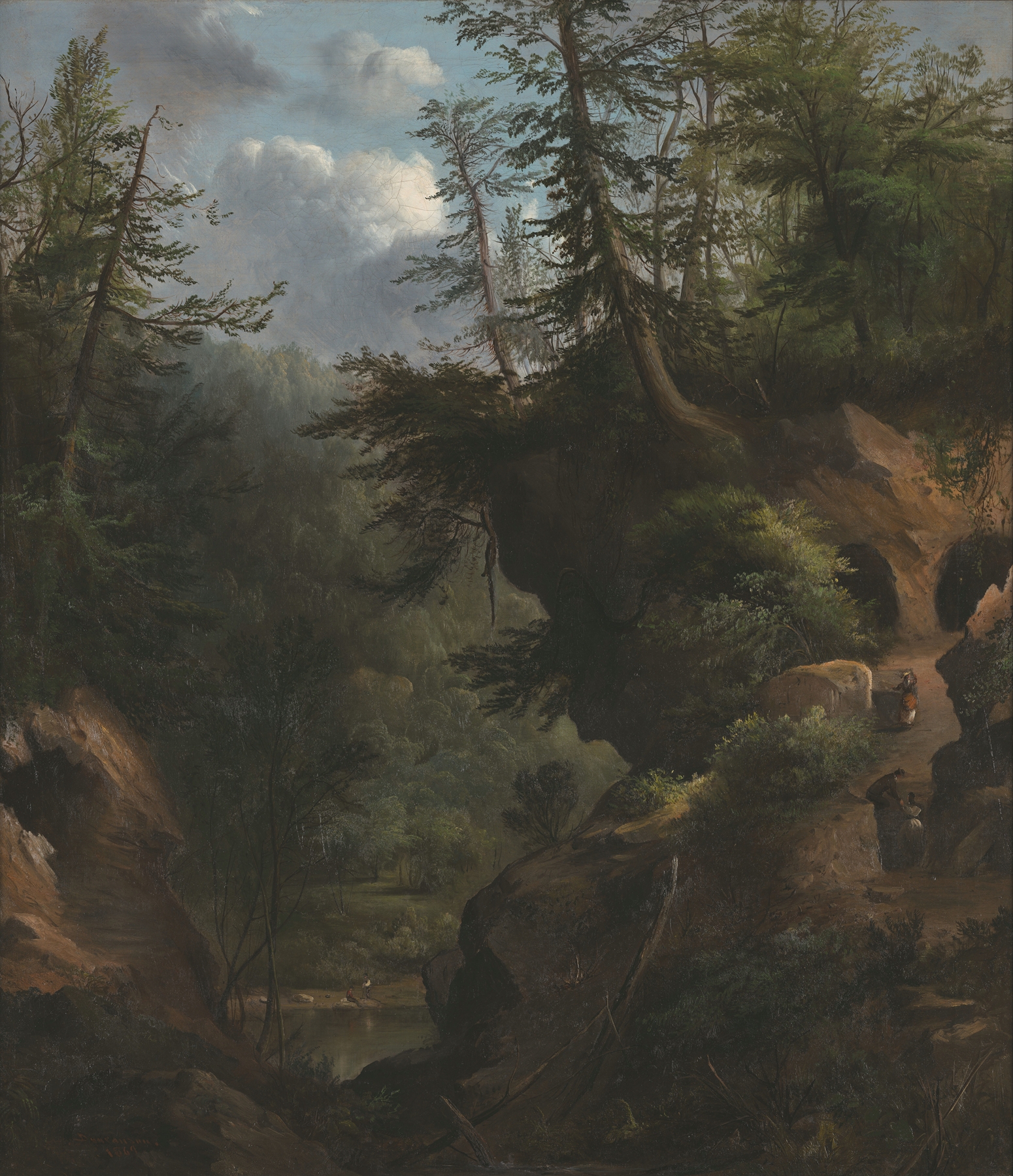
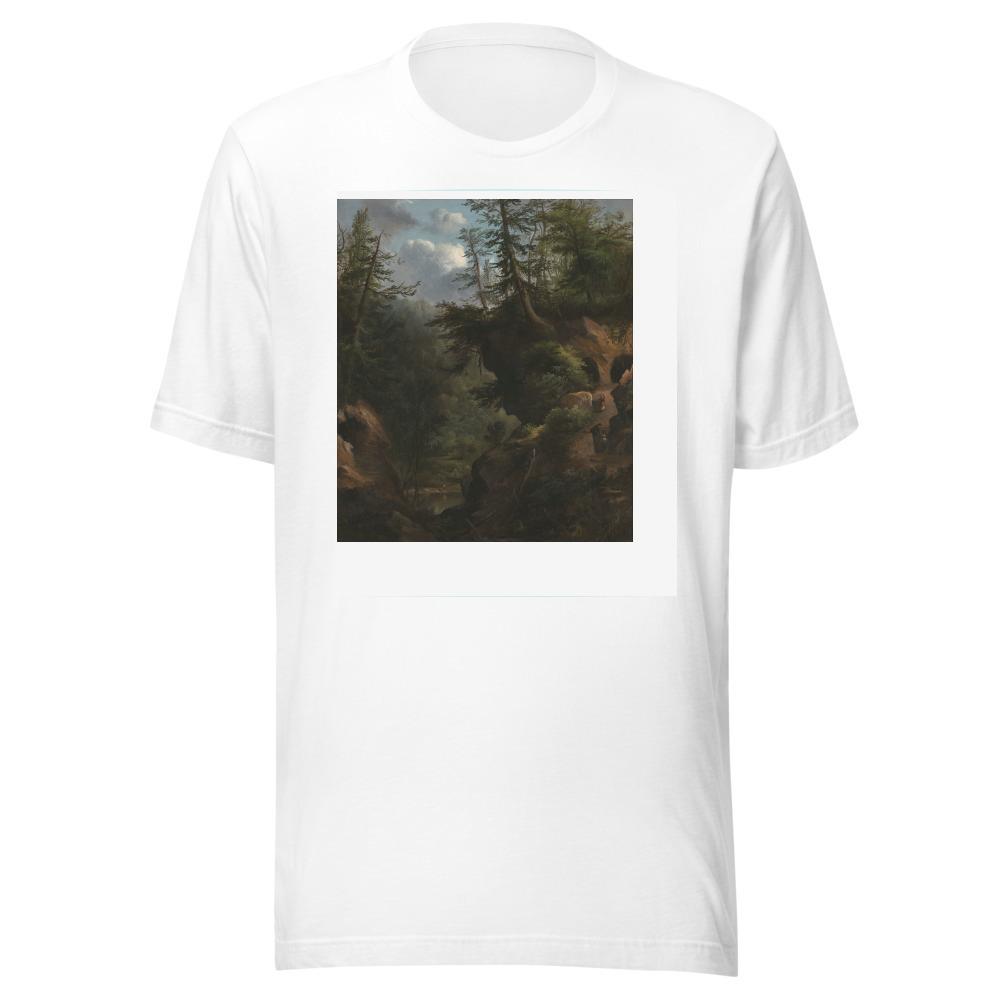
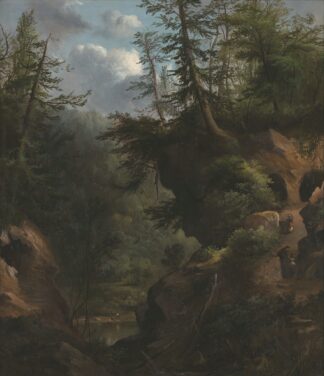
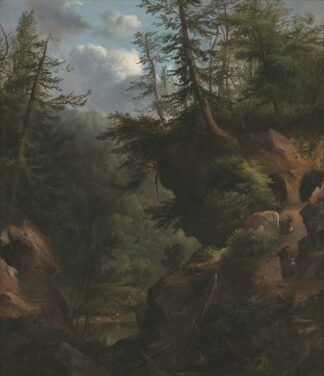
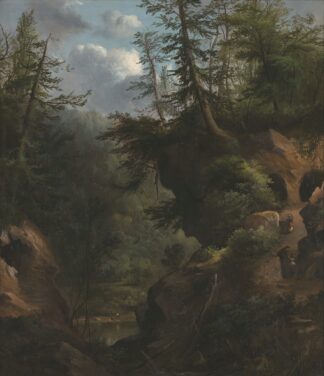
Reviews
There are no reviews yet.